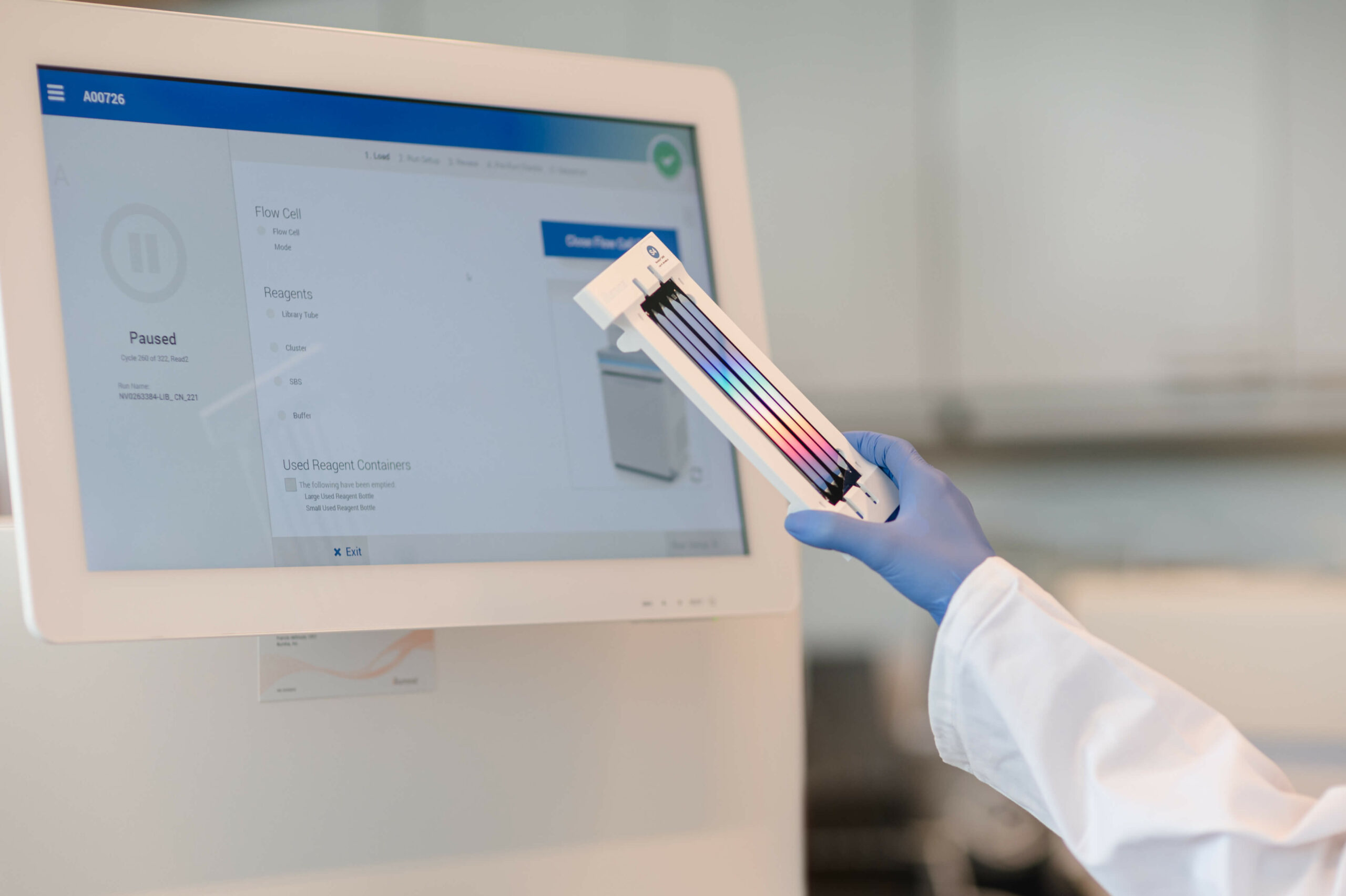OVERVIEW
Hereditary lung diseases can affect lungs, liver and/or skin. Common disorders are alpha-1-antitrypsin (AAT), cystic fibrosis (CF), interstitial lung disease, pulmonary alveolar microlithiasis and pulmonary arterial hypertension (PAH).
AAT deficiency can result in destruction of sensitive lung tissue. Symptoms can appear early in life, but many will develop at middle-age, including shortness of breath, excessive cough, wheezing, decrease in exercise capacity and chest pain that increases when breathing in. Additionally, the liver can be affected by AAT deficiency. Cystic fibrosis affects the cells that produce mucus, sweat and digestive juices and causes severe damage to the lungs, digestive system and other organs in the body. Symptoms include chronic pulmonary symptoms and gastrointestinal symptoms but also male infertility. Pulmonary arterial hypertension is a condition of increased blood pressure within the arteries of the lungs. PAH may be associated with other diseases, such as connective tissue diseases, HIV infection or liver disease. The symptoms are mostly non-specific such as fatigue, exhaustion and difficulty exercising. Early identification of individuals at risk can help establish the right clinical management plan.
We offer comprehensive and syndrome-specific panels testing for lung diseases. The test can offer a molecular genetic diagnosis of a lung disorder that is observed or predicted in you or a family member.

IMPORTANCE OF GETTING TESTED
If you or a family member has a risk of a lung disease, identifying the cause can help to take actions to improve the outcome of the disorder. Additionally, family members can be informed and encouraged to also get tested. Our genetic counsellors can provide medical advice.

You had an unexplained
right ventricular failure/dilation

You are a young person with COPD
(chronic obstructive pulmonary disease)
or liver disease

You have a connective tissue disease,
HIV infection or liver disease and
want to test the risk of pulmonary hypertension

POSSIBLE OUTCOMES OF THE TEST
A molecular genetic diagnostic report outlining the results of the sequencing analysis is provided. Changes in DNA sequences (variants) can be detrimental and lead to the development of a cardiac or aortic disorder, including asymptomatic disorders that develop later in life. We will report pathogenic and likely pathogenic variants as well as variants of unknown significance.
Pathogenic and likely pathogenic variants mean the genetic cause of the observed symptoms has been identified and may help determine the right treatment and management plan.
Variants of unknown significance means there was not enough evidence to classify the variant as either pathogenic or neutral. Annual variant reclassification and testing family members is recommended.
It is important to note that a negative result does not guarantee the absence of a disorder or that the disorder does not have a genetic cause. Genetic testing is an evolving field and may not detect all variants or there may not currently be enough evidence to classify all variants that lead to an inherited disease.
MEDICAL GENETIC COUNSELLING
We provide expert medical genetic counselling as part of a genetic testing journey. Genetic counselling is a process of communication that supports patients and their relatives before and after genetic testing. It is educational, impartial and nondirective. Prior to any genetic test, genetic counsellors will obtain a detailed family history, explain the method of testing that will be used, its risks and benefits, the limitations of the diagnosis and the implications of making a genetic diagnosis (Elliott and Friedman, 2018, Nat Rev Genet 19:735).
Upon receiving the genetic test results, genetic counselling can help the specialist physician and the patient to interpret them. They can be advised of the consequences of the results including the probability of developing the genetic disorder or passing it on to children, as well as ways to prevent, avoid or reduce these risks (Yang and Kim, 2018, Ann Lab Med 38:291). Our goal of counselling is to provide the patient with greater knowledge and thus, a better understanding of the results and the ability to make a more informed decision.

1 ml EDTA Blood
Please note: DO NOT FREEZE. Ship with a frozen ice pack. Prepare the package such that the tube is tightly packed and not loose. Avoid getting the blood tube wet from the ice pack. Place a paper towel in between ice pack and blood tube if necessary. In sub-zero temperatures, include an unfrozen ice pack in the shipping container as insulation.
15-25 working days
DNA is isolated and next generation sequencing is performed on all coding exons and conserved intronic regions. Single base pair changes, small deletions and duplications and copy number variants (CNV) are identified. Sequencing runs result in a Quality Score of >30 (accuracy >99.9%) in at least 75% of all bases with a coverage of >20-fold. CNV detection sensitivity is 76.99% and precision is 62.59% (with GC limitation between 0.4 and 0.6 per target sensitivity is 77.04% and precision is 84.10%). Variant classification is performed following ACMG guidelines (Richards et al. 2015, Genet Med 17:405; Kearney et al. 2011, Genet Med 13:680).
Next generation
sequencing (Illumina)
Twist Human Core
Exome plus Ref Seq
Spikeln
Illumina DRAGEN
Bio-IT Platform
VarSeq by
GoldenHelix
hg38, NCBI GR38
>30 (precision >99,9%)
in min. 75% of bases
99.92-99.93%; confirmation of reported SNV with Sanger
sequencing, data analysis with
SeqPilot
Richards et al. 2015, Genet Med
17:405; Ellard et al. “ACGS Best
Practice Guidelines for Variant
Classification 2020″
MaxEntScan,
SpliceSiteFinder-like,
REVEL
HGMD Professional
release, ClinVar,
gnomAD
OUR TESTS
Genes: A1AT
Genes: CFTR
Genes: ABCA3, CSF2RA, CSF2RB, FLNA, FOXF1, NKX2-1, SFTPB, SFTPC
Genes: SLC34A2
Genes: ACVRL1, BMPR1B, BMPR2, CAV1, EIF2AK4, ENG, GDF2, KCNA5, KCNK3, SMAD1, SMAD4, SMAD9, TBX4
LATEST ARTICLES





















